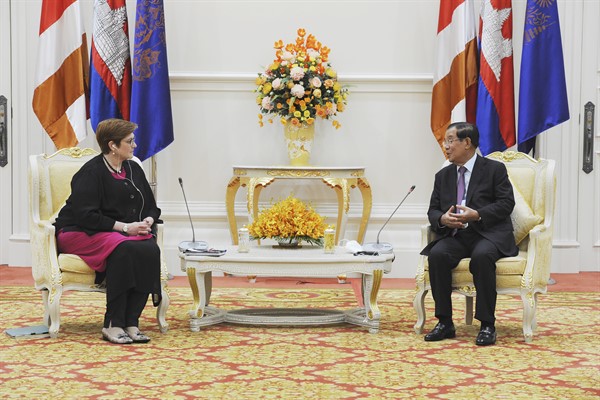Australian Foreign Minister Marise Payne is finishing up a four-nation tour of Southeast Asia this week, having begun her trip in Malaysia before moving on to Cambodia, Vietnam and finally Indonesia. A main goal of the visit is to conduct follow-up talks after Canberra agreed in late October on a new “comprehensive strategic partnership” with the main regional bloc, the Association of Southeast Asian Nations.
Another prominent item on Payne’s agenda is to seek understanding from ASEAN members for Australia’s three-way defense partnership with the U.S. and the U.K., which was just announced in September. Known as AUKUS, the pact calls for Australia to deploy nuclear-propelled attack submarines with British and American assistance.
This week on the Trend Lines podcast, Susannah Patton, a research fellow in the Foreign Policy and Defense Program at the University of Sydney’s United States Studies Center, joins WPR’s Elliot Waldman to discuss the mixed reception of AUKUS in Southeast Asia and how ASEAN is positioning itself amid rising tensions between China on one hand, and the U.S. and its allies on the other.
Listen:
Download: MP3
Relevant Articles on WPR
Australia Can’t Get By on Nuclear Subs Alone
Looming Over the AUKUS Deal Is the Shadow of War
China’s Growing Influence in Cambodia and Laos Has Vietnam on Edge
The AUKUS Deal Is a Clarifying Moment for Biden’s Foreign Policy
Trend Lines is edited by Peter Dörrie, a freelance journalist and analyst focusing on security and resource politics in Africa. You can follow him on Twitter at @peterdoerrie.
To send feedback or questions, email us at podcast@worldpoliticsreview.com.




